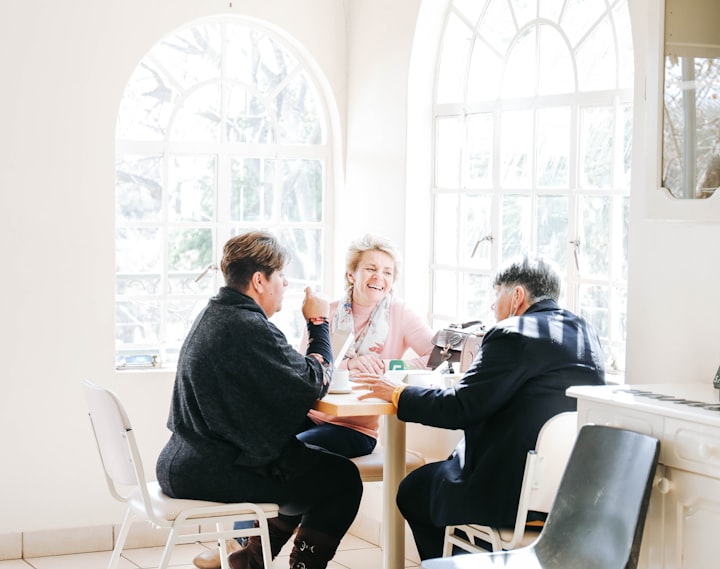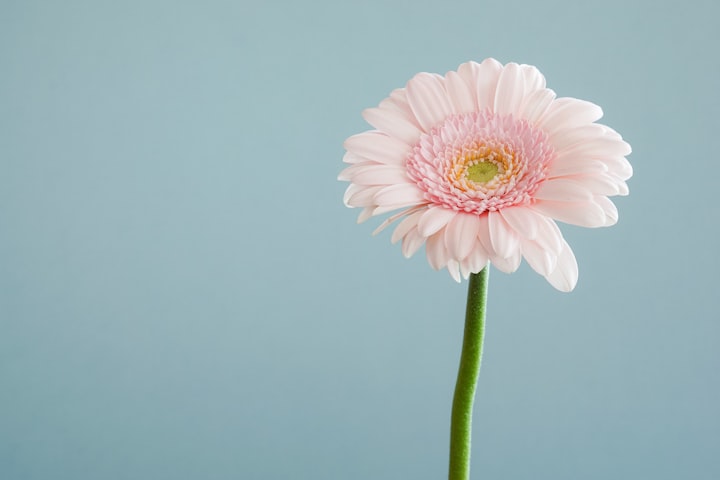
Eddie doesn’t know how long he’s been sitting on this hard metal bench. His arse is numb, so it’s been a while, but time is meaningless. He has a vague memory of something other than the sullen suspension in which he now draws breath. A long deep drag on a cigarette. An absent scratch of his neck. There’s a scar there, but he can’t remember how he got it. As he exhales, a puff of hot wind carries the carcinogenic smoke into the air and away from him. Eddie stares at it, notices its lingering thickness before it dissipates.
The last time the sun went down, Eddie had quite a few drinks, as usual. He likes beer and guzzles it like water, but only after the sun goes down. His friends drink with him and abide by the rules. Day time drinking results in punishment: nothing to drink at night. The supply of booze is unlimited, but restricted. Eddie falls asleep drunk, wakes up hungover then waits patiently for dusk when he allows himself to fantasize about the night of drinking ahead. They tell stories in raised voices, laughing until the demon seed takes hold and nothing is funny anymore. Everything is a cause for offense: a reason to curse your mate, your brother, your sister, yourself.
It’s close now. Must be. Eddie shifts slightly on the bench, finishes his cigarette and studies the sky. From within the reflected light of the giant falling orb, a person approaches. His eyes could be playing tricks on him, but he assumes not, and stiffens his posture.
‘Eddie,’ says the shape. ‘Where ya bin?’
‘Huh?’ says Eddie because he doesn’t know who’s talking to him. ‘Who that?’
‘Singo, ya mug. It’s Singo.’
He breaks into the clearing as he’s speaking where the light is even, bumps the Eddie’s shoulder as he plonks down beside him on the bench.
‘Where ya bin, Eddie?’
‘Here,’ says Eddie. ‘I’m always here right?’
‘Yeah,’ says Singo. ‘But where ya bin?’
Eddie elbows Singo. ‘You need em beer mate.’ Shakes his head. ‘Talking shit.’
Singo’s a wiry character, veins like roads on a map all over his bleached black skin. It’s a funny colour, more like a dark shade of gray. Despite his lips being swollen and cracked, his speech is clear, unaffected by age or years of substance abuse. His words, on the other hand, are dribble. He hasn’t said an interesting or original thing. Ever. He’s harmless though. Couldn’t be more different from Eddie who can’t shut up, especially when he’s boozing. His quips slice like razors, but he still makes people laugh. Most of the residents avoid him because they know his history, and if they’ve ever been brave or stupid enough to drink with him, they’ve felt the sting of his tongue. If they’re lucky, that’s all they cop. Eddie’s got a temper: a bloody firecracker fuse. Most folks reckon he deserves to be here, and that’s how they vainly try to comfort themselves. Just like they’ve always done: putting shit on everyone else to stay clear of the sewer of personal responsibility. It’s too damn messy there, so they all do whatever ever they can to keep their distance from the stinking shame.
Singo returns the elbow. ‘I say where ya bin Eddie?’
Eddie stands quickly and knocks Singo off the bench with a backhander. He feels better for it and is sure Singo will keep his damn mouth shut at least until the beer arrives. A voice calls out from the shop. ‘Grog’s on!’
Offering a hand up to Singo who accepts it and is on his feet in no time with his arm around Eddie’s shoulder. ‘You’re a mad bugger, Eddie.’
The shop is not a shop. It’s just another one of the hundreds of transportable homes which comprise the town. Their all the same size and shape, but some are newer than others. Some of them are just as scarred as the people who live in them. They smell like shit too, most of them. Filled with mess and clutter: non-living extensions of the ghosts who walk in and out and around. Around in endless circles waiting for the sun to go down.
Maggie is more hair than head. Her grandma told her it was a gift, but she’s never figured out what to do with it, so it runs wild like her imagination. Maggie is skinny, just bones with the potential for feminine curves, but no one ever cared to contribute along those lines, and she doesn’t care anymore. She’s watching from a safe distance as the flock congregate at the shop; the shop that sells nothing; nothing but trouble. Maggie hates the grog shop. Young though she is, just seventeen, she’s got a long history with that poison. She knows what it does. How it preys on its victims, overcoming strength and goodness while encouraging weakness and fueling immorality. Maggie’s in the wrong place again. No one else knows how old they are, nor do they give a shit about the bondage oppressing them. Maggie may not be able to control her hair, but she’ll be damned if she’ll give up control of her destiny. She squats beside a pathetic sapling, studies the sheep and prays that Eddie doesn’t kill anyone tonight.
‘What you doin’ there girl? Coming to the shop? Grog’s on!’
The woman doesn’t wait for Maggie’s answer. She can barely walk, or see through swollen eyes, but she’ll make it to the grog shop even if it takes her half the night. She’ll get her fill. She’ll laugh until someone gets pissed off about some trivial misunderstanding or lame insult, and then she’ll join the growling, blabbering mob. She’ll probably cop a fist or two, but that’s her life and nobody’s twisting her arm to go there every night.
‘Give it a miss Auntie!’ calls Maggie to the woman’s back as if it will make a difference, as if it will stop her like it’s never previously done. This time under her breath, ‘Give it a miss Auntie. It’s no good, that shit. You know it’s bad, bad shit.’
The distance is a safe place from where she can watch the grog shop disintegrate, collapse into anarchy, fall into the mire of uncontained rage and misery. Maggie’s last visit was a full three months ago now. She’s managed to keep track. There’s a spot beyond the transportables, near the thin stretch of wire pretending to be a boundary fence. It’s mostly hidden by a long forest of spear grass which flourishes as the land begins to dip down to a creek bed which holds only enough water to prolong death by dehydration. Maybe, thinks Maggie, it’s where the dead drink. It’s possible no one else in has visited the perimeter, the undeclared yet uncontested bars of their cage. The way the land slopes steeply to the creek means that a person sitting here can’t be seen from the cluster of decrepit houses. This is Maggie’s private sanctuary. She’s taken to sleeping out here, looking through the fence to the moonlit country on the other side. One day, she’s going to climb the fence, but for now, the time she spends here is taken up with recording and remembering. There’s a collection of pebbles pressed into the dirt: one for each day. In a nearby patch of earth which she cleared soon after her first trip to the edge of their miserable little town, she keeps a few sticks of different widths with which she draws something each day: a memory, a feeling, an event. When she comes again, she studies the drawing from the previous day and meditates. By observing the erectness of the spear grass, she can tell the dry season is coming to an end. When the rain comes she’ll have to retreat to the gloomy edifices.
As more townsfolk gather at the Shop, a line forms and good-natured banter rises into the air, carried to Maggie on the breeze. They’re happy now. Joyful in anticipation. The good humour will last until well after sundown, but it won’t last. She sees Eddie towards the front of the queue, just outside the door. He’s a little slow today. Singo, Eddie’s punching bag, is with him. Maggie shivers, frightened for the younger girls who have joined the queue. In amongst a few strangers, newcomers, she sees Cindy in whom she almost confided, before she rushed headlong into the addictive despair. They’d been talking for some time, discussing the situation, fanning the embers of hope, encouraging one another. They might have even been friends. But the sickness captured her, and now she was at the Shop again. Maggie hadn’t seen her for three days following a beating she took one night. The next morning, Maggie called in to see her because she’d heard from one of the Aunties that she’d pressed Eddie’s buttons. Cindy bore the obvious marks of Eddie’s wrath on her face, but when pressed for details would only say that Eddie gave it to her good and she had asked for it.
‘I let ‘im ‘ave his way cos I deserved it sis.’
‘No girl. No.’
‘Yeah,’ said Cindy, a spark of anger in her eyes, perhaps masking her shame. ‘I asked for it. Now get outta here. Ima bloody needin’ sleep.’
Wiping tears from her eyes, Maggie stood up, turned slowly and walked away. She’d seen this before. Plenty of times. Too many times.
The line to the grog shop ripples with shuffling movements but does not seem to shorten. As far as she knows, she’s the only teetotaler in town. Most will take their poison away, find a quiet place and medicate the pain of hopelessness and disillusionment in somber silence. The rest want to share their suffering, to expel their demons in a communal celebration of agony. Maggie understands it and she doesn’t understand it. Largely her confusion is about herself. Her isolation. Her purity. It’s origins. What is this place? How did she get here, and what is the point of such a pitiful lonely existence? These are the monstrously important questions she ponders each night in her sanctuary. She also prays to an unknown God. It was awkward at first but talking out loud to an invisible and mysterious higher power has provided more solace than she could have imagined during her first feeble mutterings into the sky.
Comfort is all she has, but it’s not all she wants.
Unconsciously, Maggie moves toward the shop, keeping her eyes on Cindy. She walks slowly, wrings her hands, gulping with fearful expectation. Her attempts to remove Cindy from the queue, to save he, won’t be well received by anyone. None of those pathetic lost souls edging their way to counterfeit salvation would appreciate Maggie’s otherness. They would resent her interference, and threaten her, resist her, abuse her.
She whispers to herself. She’s getting closer to Cindy as Cindy draw nearer the door to the Shop. Maggie knows she could reach her easily, but she holds her pace, perhaps not wishing to draw attention to herself. She’s hot, burning face, nuclear fission in her heart. She studies the line, but thus far she’s remained invisible. She looks ahead to the door and sees Eddie leaving the shop with a carton on his shoulder. He sees her. Walks towards her: beaming, happy to see her like they are best friends.
‘Maggie girl,’ he shouts, even though he’s not more than two metres away from her. ‘Where ya bin?’ He passes Cindy, who ignores him. ‘Where ya bin, Maggie girl?’ He’s right in her face now. No change in volume, like he wants to make sure everyone hears this conversation. ‘Commalong now girl. Drink with me.’
Maggie shakes her head. Eddie grabs her arm, squeezing her bicep with remarkable strength: his disproportionately large hands hold you like a vice. She fights the desire to cry as she attempts to pull free.
‘Maggie,’ says Eddie. ‘Maggie. Maggie. Maggie. My girl. Where ya bin?’ ‘I ain’t your girl,’ she says, but he doesn’t hear which makes her doubt whether she even spoke the words aloud.
He leads her away. She’s still struggling to break his grip when an unlikely savior appears. ‘Leave her be, Eddie.’
He stops suddenly, like he’s hit a wall: slapped to a standstill by Cindy’s order. A ragged smile breaks Eddie’s face and he releases Maggie without even thinking about it. Maggie watches his expression, changing gears, muscles twitching. She should leave.
‘Cindy,’ says Eddie, and everyone within spitting distance holds their breath. The hot breeze is extinguished by the tension. He steps toward Cindy; raises his hand, but only to wrap his arm around Cindy and lead her away. Maggie watches them go, and a collective sign of relief makes her tremble. She stumbles forward, thinking to follow them, but stops. Cindy looks over her shoulder, glares at Maggie who understands she has lost. Everyone loses here. Maggie tousles her hair to comfort herself, feels her sadness giving birth to strength. She looks to the place, near where the dead drink, considers going there to draw her power. She worries she might release it that way, and that it would be better to nurse it, to cherish it. She turns away, looking now through the woeful march of the desolate captives, beyond the decaying boxes in which they exist, across the expanse of rusty earth to the highway. A road. No one goes there. She doesn’t know why. Has anyone ever tried? Has anyone ever thought of leaving? As far as Maggie knows, there’s nothing to stop them leaving. The fence is a symbol of incarceration, not an impediment to escape. Before she realizes, she’s walking.
As she nears the perimeter, she notices a sign, beside a gate. She’s never been here before, very step is a new adventure, a small movement towards something new. Maggie straightens her shoulders, plays with her hair some more, mussing and teasing it as if she can tame it. She feels lighter. Every metre she covers, more weight falls off her back. She’s moving faster now, and she sees the gate has a chain snaked around the adjacent fence post. There’s a large, dull coloured padlock partly buried in the coils. She slows a little, disheartened. With only a few metres remaining, Maggie wonders why she tortured herself with hope. She stares at the metal serpent barring her flight to tomorrow. The fence pushes in towards her, jeering, threatening, yet she presses on. Less confident, her shoulders sagging again, but the embers smolder providing just enough warmth to propel her the final few steps. She notices the sign is larger than she thought, and now with her eyes off the chain locked gate and onto the fence standing uncertainly between her and the sign. When her right knee hits the fence, she winces and stops before raising her left leg and stepping over. Surprisingly, her right leg follows and then she stands with the sign at her back and the highway stretched in front of her. Cars and trucks whiz by in both directions. She can hear them.
Maggie turns around to look at the gate, then reads the sign. It says Hopetown. She looks left, then right, the irony of the sign not registering. The setting sign hangs low in the western sky, an enormous beacon of golden light. Maggie walks towards it.
About the Creator
D.A. Cairns
Heavy metal lover and cricket tragic, D.A. Cairns lives on the south coast of News South Wales. He works as a freelance writer, has had over 90 short stories published, and has authored six novels to date.





Comments
There are no comments for this story
Be the first to respond and start the conversation.